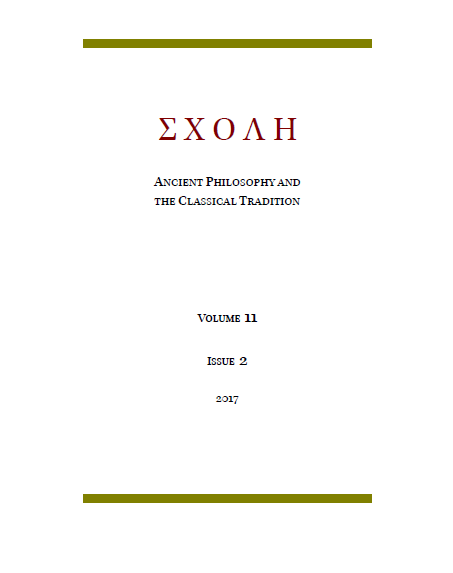ГРЕЧЕСКАЯ АРИФМОЛОГИЯ: ПИФАГОР ИЛИ ПЛАТОН?
GREEK ARITHMOLOGY: PYTHAGORAS OR PLATO?
Author(s): Leonid ZhmudSubject(s): Ancient Philosphy, Analytic Philosophy
Published by: Новосибирский государственный университет
Keywords: Arithmology; number symbolism; Pythagoreanism; Neopythagoreanism; Platonism; early Academy;
Summary/Abstract: This essay considers the origins of the arithmological genre, the first specimen of which was an anonymous Neopythagorean treatise of the first century BCE. Arithmology as a special genre of philosophical writings dealing with the properties of the first ten numbers should be distinguished from number symbolism, which is a universal cultural phenomenon related to individual significant numbers (three, seven, etc.). As our analysis shows, the philosophical foundations of arithmology were laid down in the treatise of Plato’s successor Speusippus On Pythagorean Numbers, who relied on the Platonic doctrine of the ten ideal numbers, whereas in ancient Pythagoreanism arithmological notions, unlike number symbolism, are not attested. In the first century BCE, an epoch of revival of Platonism and Aristotelianism, Speusippus’ ideas received a second birth, thus marking the beginning of arithmology as a popular genre.
Journal: ΣΧΟΛΗ. Философское антиковедение и классическая традиция
- Issue Year: XI/2017
- Issue No: 2
- Page Range: 428-459
- Page Count: 32
- Language: Russian

